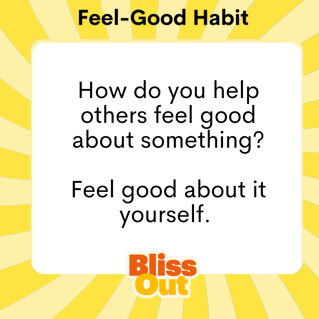 I own several vacation rentals in Canmore, Alberta. It’s a mountain town.
I own several vacation rentals in Canmore, Alberta. It’s a mountain town.
I got a complaint from a guest that she doesn’t like the altitude; the air is too thin and dry. Of course, I can argue forever that it's a high altitude in the mountain, and I can’t control the altitude.
Battling right and wrong is missing the point. The longer I pay attention to this gripping, the more I make it a problem when it’s not.
What I’ve learned about people is when they complain, it’s often more about them than me. The problem they are complaining about isn’t even a problem.
They are trying to make that problem exist by complaining about it. The problem only exists as thoughts in their mind and a bunch of mixed emotions and unbalanced perspectives. But it’s not real.
I’m not saying I don’t take responsibility; it’s just that the only thing making that problem exist is our focus on it. Because we are highly service-oriented, we’re going to try to fix it, and we’re going to set rules to punish other people in similar circumstances. This physical action makes that problem real by keeping it in our lives into the future.
In service, they say the customer is always right. How can that possibly be true? The customer who knows very little about your product isn’t trained on your policy, delivery schedules, industry, or protocol? How can they know what’s right?
All that’s happening is the customer doesn't have enough information to have appropriate expectations, especially given correct circumstances.
It’s very unempowering to tell staff who are talented, skilled and committed to your company that a random customer( who knows nothing about your industry) knows more than them.
What’s happening in customer service is we just aren’t looking at things the same way. If we disagree, My perspective is different from yours, and our viewpoint is correct ( and unique) to each of us.
If we could take the emotion out of it and find neutral ground, we could fill in the blanks with information until we’re both looking at close to the same thing.
What makes the problem a problem is our attention to it. It’s far better to focus on a solution. You can often turn a complaint around by asking the person what they think is the solution. What would you have me do?
This way, they put themselves in your shoes and realise there is no solution because there’s no problem. Often what happens is circumstances sometimes entirely unrelated to you, or your product changed in that person's life, and it’s impacting the person's ability to appreciate their life. Because your product is in their life, you become a part of their problem.
Again, if there are problems in any business, fix them, but I’m sure you already have. If it were a glaring issue, it would have already been resolved in most instances. How can hundreds of other people interact with the same company and product without problems? Because the problem doesn’t exist.
It’s not that the customer is right. It's more accurate to say the customer is upset about something and bringing you and your team into it.
It's always best to help the customer feel better. This may be your only goal. Empathise with the customer, relate to their mixed emotions and slowly add in information to help balance their perspective.
If you don’t get caught up in the mixed emotions, you can see some potential.
Possibly something you advertise gives them the wrong impression. These would never be a problem but simple opportunities to enhance communication.

